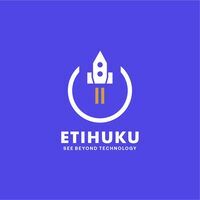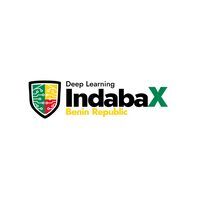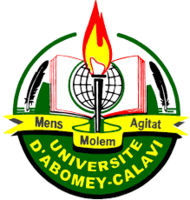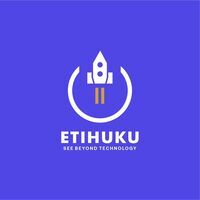
IndabaX Benin Republic Hackathon

If you have any questions, please reach out to your ambassador Jeremiah Olamijuwon - Jherrhy.
Mining cryptocurrencies such as Ethereum and Bitcoin involves completing a proof-of-work where miners solve complex puzzles to earn profit in terms of the cryptocurrency they mined.
Owing to the complexity of the puzzles, mining cryptocurrency often comes with a high computational cost. Developers of large cryptocurrency mining operations have created workarounds that make use of collective resources from users to complete the calculation needed for a proof-of-work.
Cryptojacking is a type of cyberattack that uses malicious scripts similar to those from large cryptocurrency houses to illegally mine cryptocurrency on other people’s machines without their users being aware. These attacks are stealthy and difficult to detect or analyse, often leading to decreased computing speeds for users, as well as crashes due to the strain on computational resources.
The objective of this challenge is to classify network activity from various websites as either cryptojacking or not, based on features related to both network-based and host-based data.

Deep Learning IndabaX, which the African Deep Learning Indaba supports, is a locally-organised Indaba (which means gathering originating from the Bantu people of Southern Africa) with the mission to strengthen Machine Learning and Artificial Intelligence in Africa. The IndabaX Benin Republic shares the vision and mission of the main body by doing its part to enhance knowledge and build capacity in machine learning and artificial intelligence in Benin Republic.

The University of Abomey-Calavi (French: Université d'Abomey-Calavi) is the principal public university in the west African country of Benin. The university is located in the city of Abomey-Calavi in the south of the country. The school is composed of 19 institutions and six campuses. The university has a number of undergraduate and postgraduate programmes offered at a range of locations across the area. It is a member school of the Association of African Universities and Agence universitaire de la Francophonie.

Etihuku is an African Artificial Intelligence Technology and Research company headquartered in South Africa, but present in many parts of Africa, including Benin Republic, Nigeria, Eswatini.
The error metric for this competition is the F1 score, which ranges from 0 (total failure) to 1 (perfect score). Hence, the closer your score is to 1, the better your model.
F1 Score: A performance score that combines both precision and recall. It is a harmonic mean of these two variables. Formula is given as: 2*Precision*Recall/(Precision + Recall)
Precision: This is an indicator of the number of items correctly identified as positive out of total items identified as positive. Formula is given as: TP/(TP+FP)
Recall / Sensitivity / True Positive Rate (TPR): This is an indicator of the number of items correctly identified as positive out of total actual positives. Formula is given as: TP/(TP+FN)
Where:
TP=True Positive
FP=False Positive
TN=True Negative
FN=False Negative
1 if there is evidence of crypto jacking, 0 if no evidence
ID Target ID_C7AV4GEJP9 1 ID_AFVZYGLXXY 0
1st place: 150,000 FCFA
There are 500 Zindi points available. You can read more about Zindi points here.
This challenge starts on 22 November 2024 at 15:00 PM.
Competition closes on 23 November 2024 at 15:00 PM.
We reserve the right to update the contest timeline if necessary.
How to enroll in your first Zindi competition
How to create a team on Zindi
How to update your profile on Zindi
How to use Colab on Zindi
How to mount a drive on Colab
- Languages and tools: You may only use open-source languages and tools in building models for this challenge.
- Who can compete: Open to Benin users.
- Submission Limits: 10 submissions per day, 10 submissions overall.
- Team size: You may only participate in this challenge as an individual.
- Public-Private Split: Zindi maintains a public leaderboard and a private leaderboard for each challenge. The Public Leaderboard includes approximately 30% of the test dataset. The private leaderboard will be revealed at the close of the challenge and contains the remaining 70% of the test set.
- Data Sharing: CC-BY SA 4.0 license
- Platform abuse: Multiple accounts, or sharing of code and information across accounts, or any other forms of platform abuse are not allowed, and will lead to disqualification.
- Code Review: Top 5 on the private leaderboard will receive an email requesting their code at the close of the challenge. You will have 1 hours to submit your code.
ENTRY INTO THIS CHALLENGE CONSTITUTES YOUR ACCEPTANCE OF THESE OFFICIAL CHALLENGE RULES.
Full Challenge Rules
This challenge is open to Benin users.
Collaboration
You may participate in challenges as an individual
Multiple accounts per user are not permitted, and neither is collaboration or membership across multiple users. Individuals and their submissions originating from multiple accounts will be immediately disqualified from the platform.
Any code that is shared, must be made available to all challenge participants through the platform. (i.e. on the discussion boards).
Datasets and packages
The solution must use publicly-available, open-source packages only.
You may use only the datasets provided for this challenge. Automated machine learning tools such as automl are not permitted.
You may use pretrained models as long as they are openly available to everyone.
You are allowed to access, use and share challenge data for any commercial,. non-commercial, research or education purposes, under a CC-BY SA 4.0 license.
You must notify Zindi immediately upon learning of any unauthorised transmission of or unauthorised access to the challenge data, and work with Zindi to rectify any unauthorised transmission or access.
Your solution must not infringe the rights of any third party and you must be legally entitled to assign ownership of all rights of copyright in and to the winning solution code to Zindi.
Submissions and winning
You may make a maximum of 10 submissions per day.
You may make a maximum of 10 submissions for this challenge.
Before the end of the challenge you need to choose 2 submissions to be judged on for the private leaderboard. If you do not make a selection your 2 best public leaderboard submissions will be used to score on the private leaderboard.
During the challenge, your best public score will be displayed regardless of the submissions you have selected. When the challenge closes your best private score out of the 2 selected submissions will be displayed.
Zindi maintains a public leaderboard and a private leaderboard for each challenge. The Public Leaderboard includes approximately 30% of the test dataset. While the challenge is open, the Public Leaderboard will rank the submitted solutions by the accuracy score they achieve. Upon close of the challenge, the Private Leaderboard, which covers the other 70% of the test dataset, will be made public and will constitute the final ranking for the challenge.
Note that to count, your submission must first pass processing. If your submission fails during the processing step, it will not be counted and not receive a score; nor will it count against your daily submission limit. If you encounter problems with your submission file, your best course of action is to ask for advice on the Competition’s discussion forum.
If you are in the top 5 at the time the leaderboard closes, we will email you to request your code. On receipt of email, you will have 1 hour to respond and submit your code following the Reproducibility of submitted code guidelines detailed below. Failure to respond will result in disqualification.
If your solution places 1st, 2nd, or 3rd on the final leaderboard, you will be required to submit your winning solution code to us for verification, and you thereby agree to assign all worldwide rights of copyright in and to such winning solution to Zindi.
If two solutions earn identical scores on the leaderboard, the tiebreaker will be the date and time in which the submission was made (the earlier solution will win).
The winners will be paid via bank transfer, PayPal if payment is less than or equivalent to $100, or other international money transfer platform. International transfer fees will be deducted from the total prize amount, unless the prize money is under $500, in which case the international transfer fees will be covered by Zindi. In all cases, the winners are responsible for any other fees applied by their own bank or other institution for receiving the prize money. All taxes imposed on prizes are the sole responsibility of the winners. The top winners or team leaders will be required to present Zindi with proof of identification, proof of residence and a letter from your bank confirming your banking details. Winners will be paid in USD or the currency of the challenge. If your account cannot receive US Dollars or the currency of the challenge then your bank will need to provide proof of this and Zindi will try to accommodate this.
Please note that due to the ongoing Russia-Ukraine conflict, we are not currently able to make prize payments to winners located in Russia. We apologise for any inconvenience that may cause, and will handle any issues that arise on a case-by-case basis.
Payment will be made after code review and sealing the leaderboard.
You acknowledge and agree that Zindi may, without any obligation to do so, remove or disqualify an individual, team, or account if Zindi believes that such individual, team, or account is in violation of these rules. Entry into this challenge constitutes your acceptance of these official challenge rules.
Zindi is committed to providing solutions of value to our clients and partners. To this end, we reserve the right to disqualify your submission on the grounds of usability or value. This includes but is not limited to the use of data leaks or any other practices that we deem to compromise the inherent value of your solution.
Zindi also reserves the right to disqualify you and/or your submissions from any challenge if we believe that you violated the rules or violated the spirit of the challenge or the platform in any other way. The disqualifications are irrespective of your position on the leaderboard and completely at the discretion of Zindi.
Please refer to the FAQs and Terms of Use for additional rules that may apply to this challenge. We reserve the right to update these rules at any time.
Reproducibility of submitted code
- If your submitted code does not reproduce your score on the leaderboard, we reserve the right to adjust your rank to the score generated by the code you submitted.
- If your code does not run you will be dropped from the top 10. Please make sure your code runs before submitting your solution.
- Always set the seed. Rerunning your model should always place you at the same position on the leaderboard. When running your solution, if randomness shifts you down the leaderboard we reserve the right to adjust your rank to the closest score that your submission reproduces.
- Custom packages in your submission notebook will not be accepted.
- You may only use tools available to everyone i.e. no paid services or free trials that require a credit card.
Documentation
A README markdown file is required
It should cover:
- How to set up folders and where each file is saved
- Order in which to run code
- Explanations of features used
- Environment for the code to be run (conda environment.yml file or an environment.txt file)
- Hardware needed (e.g. Google Colab or the specifications of your local machine)
- Expected run time for each notebook. This will be useful to the review team for time and resource allocation.
Your code needs to run properly, code reviewers do not have time to debug code. If code does not run easily you will be bumped down the leaderboard.
Consequences of breaking any rules of the challenge or submission guidelines:
- First offence: No prizes for 6 months and 2000 points will be removed from your profile (probation period). If you are caught cheating, all individuals involved in cheating will be disqualified from the challenge(s) you were caught in and you will be disqualified from winning any challenges for the next six months and 2000 points will be removed from your profile. If you have less than 2000 points to your profile your points will be set to 0.
- Second offence: Banned from the platform. If you are caught for a second time your Zindi account will be disabled and you will be disqualified from winning any challenges or Zindi points using any other account.
- Teams with individuals who are caught cheating will not be eligible to win prizes or points in the challenge in which the cheating occurred, regardless of the individuals’ knowledge of or participation in the offence.
- Teams with individuals who have previously committed an offence will not be eligible for any prizes for any challenges during the 6-month probation period.
Monitoring of submissions
- We will review the top 10 solutions of every challenge when the challenge ends.
- We reserve the right to request code from any user at any time during a challenge. You will have 24 hours to submit your code following the rules for code review (see above). Zindi reserves the right not to explain our reasons for requesting code. If you do not submit your code within 24 hours you will be disqualified from winning any challenges or Zindi points for the next six months. If you fall under suspicion again and your code is requested and you fail to submit your code within 24 hours, your Zindi account will be disabled and you will be disqualified from winning any challenges or Zindi points with any other account.
Join the largest network for
data scientists and AI builders